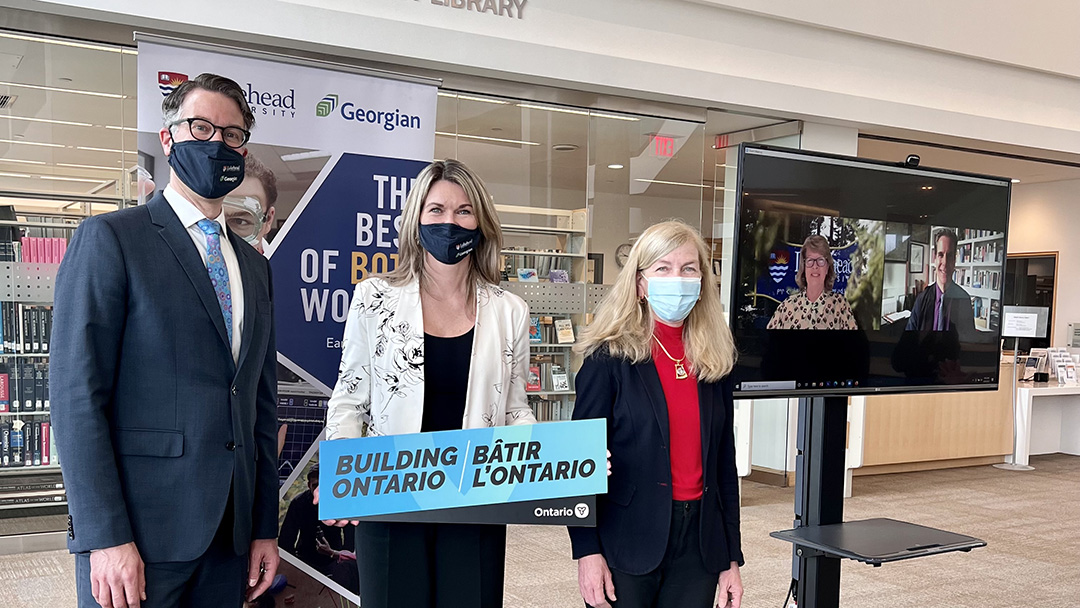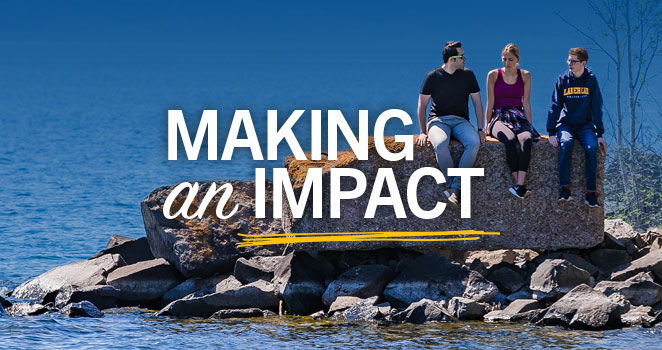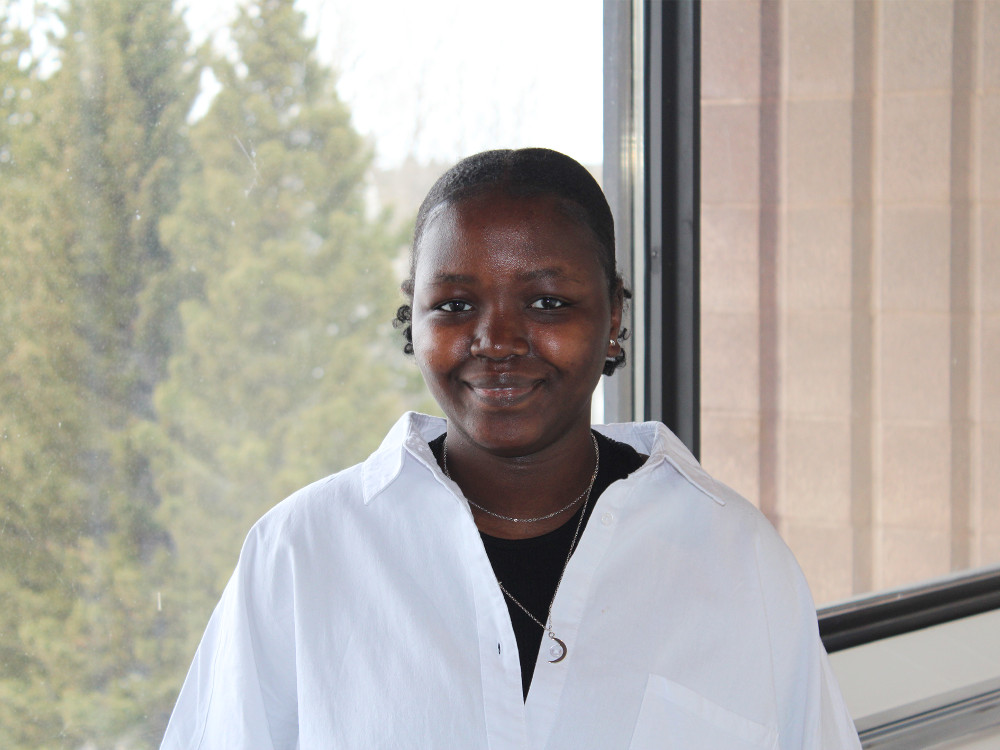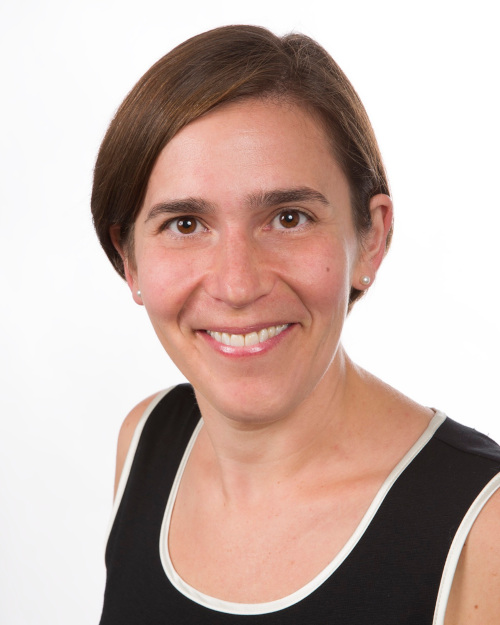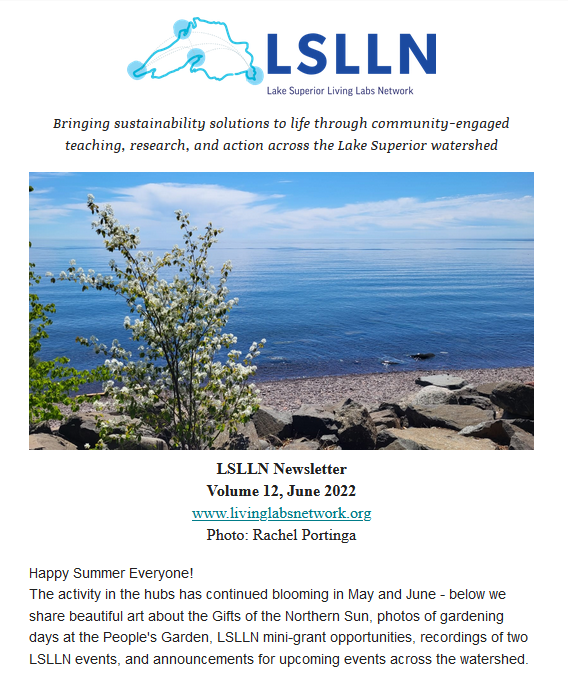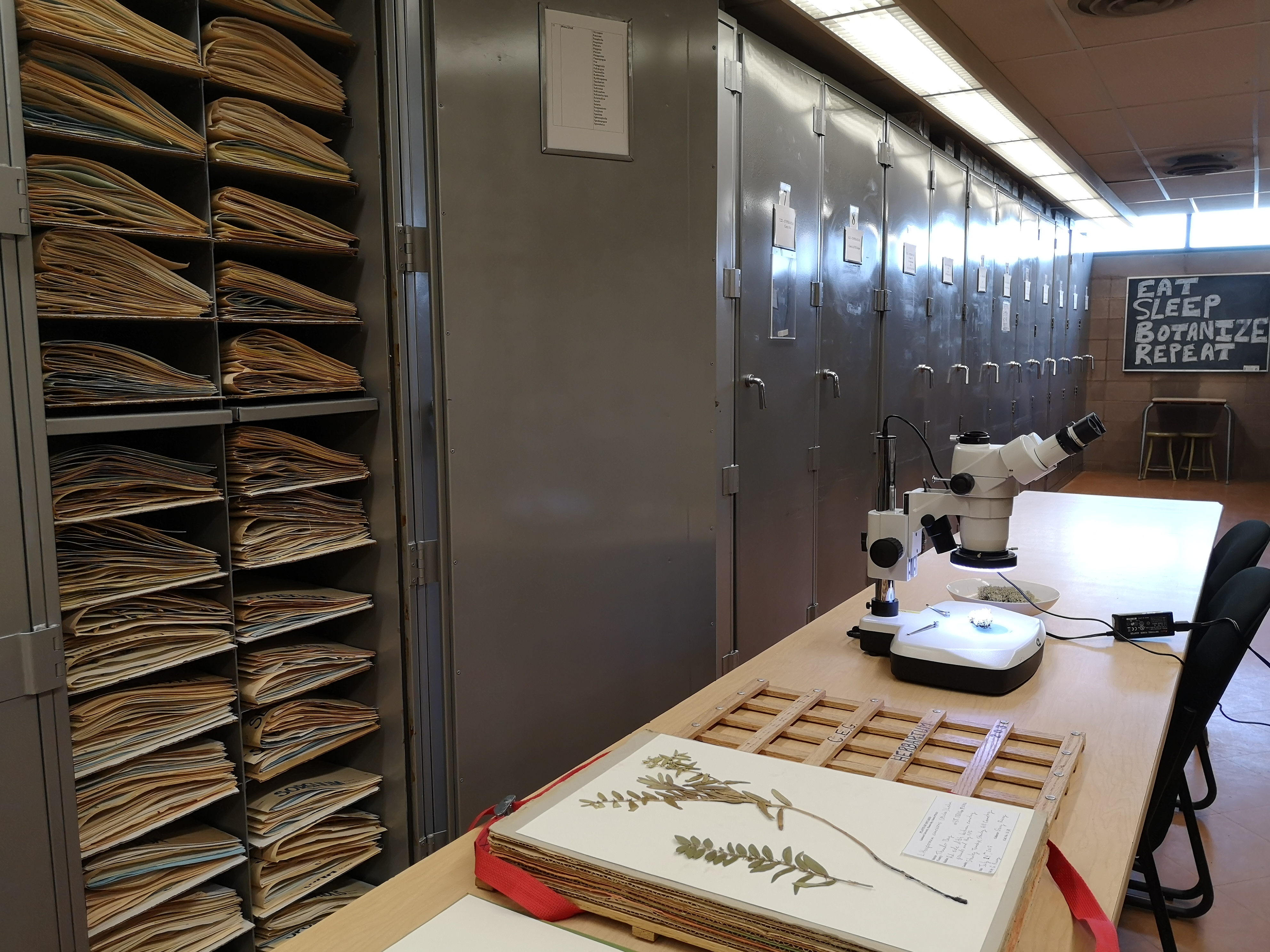Ontario Helping Students in Simcoe County Graduate with Job-ready Skills
ORILLIA — The Ontario government is providing $2.56 million to support the continuing Lakehead University-Georgian College partnership in Simcoe County. The partnership provides more postsecondary options in the region, including increased access to degree-level education, helping students gain the knowledge and hands-on training they need to get good jobs. Details were announced today by Jill Dunlop, Minister of Colleges and Universities at Lakehead University’s Orillia campus.
“Collaborations like Lakehead-Georgian provide students with local opportunities to build the knowledge and skills they need to find meaningful jobs,” said Minister Dunlop. “Investing in innovative learning opportunities for students is part of the government’s plan to build a skilled workforce that supports economic growth in the province.”
Nearly 3,000 postsecondary students currently benefit from this program, where students can earn both a university degree and a college diploma in four years. Programming is focused on meeting the changing needs of the local economy to prepare graduates with a mix of degree-level education and technical skills.
“Since 2017, Lakehead University and Georgian College’s formal partnership has provided students from Simcoe County and beyond with the opportunity to graduate from STEM fields of study with the best degree-diploma learning experiences available,” said Dr. Moira McPherson, President and Vice-Chancellor, Lakehead University. “Thanks to today’s Ministry of Colleges and Universities’ announced investment, this unique joint-offering from our institutions will be able to continue — improving access to degree-level postsecondary programming that nurtures tomorrow’s job-ready workforce — for years to come.”
“Georgian and Lakehead share many values – including student access to quality education,” said Dr. MaryLynn West-Moynes, President and CEO, Georgian College. “As the two recognized postsecondary institutions serving Central Ontario, we chose to partner to improve postsecondary attainment rates, which remain below the provincial average. We’re grateful for this important funding, which will provide enhanced experiential learning opportunities to benefit our students and further support regional economic growth and development.”
The partnership between Lakehead University and Georgian College increases access to degree level education in Simcoe County, helps support collaboration and research between the two institutions and promotes economic development in the region.
QUICK FACTS
- Both Lakehead University and Georgian College will each receive $1.28 million in funding to support the partnership in 2022-23.
- The Lakehead-Georgian partnership in Simcoe County was formalized in 2017.
- Students study at campuses in both Barrie and Orillia.
- Four programs are currently offered through Lakehead-Georgian:
- Bachelor of Engineering (Electrical) with Electrical Engineering Technology advanced diploma;
- Honours Bachelor of Arts and Science (Environmental Sustainability) Specialization in Ecosystem Management degree with Environmental Technician diploma;
- Honours Bachelor of Science in Applied Life Sciences degree with Biotechnology – Health diploma; and
- Honours Bachelor of Science in Computer Science degree with Computer Programming diploma.
ADDITIONAL RESOURCES
